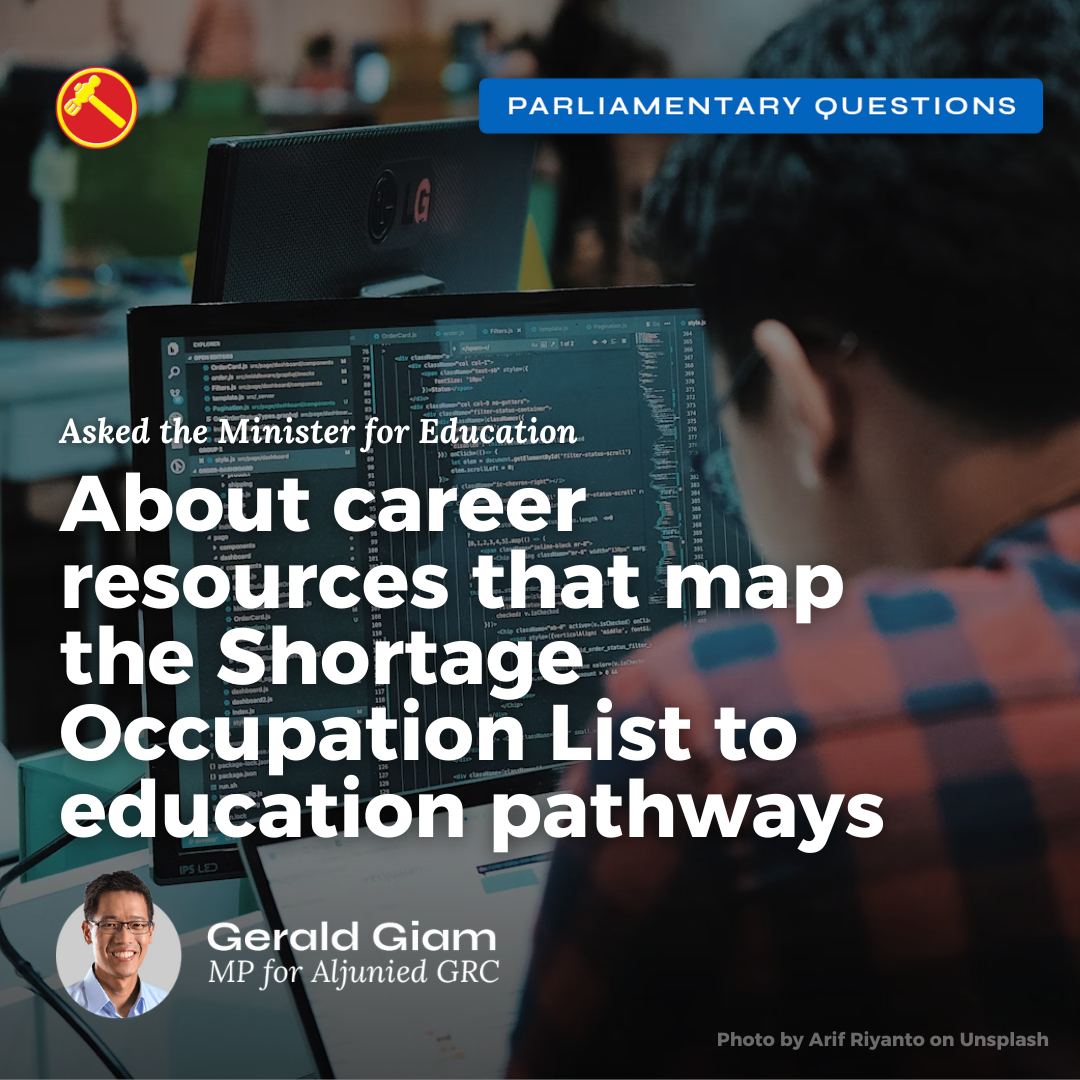In an increasingly digital world riven with military conflicts and great power rivalries, it is important for Singaporeans to be equipped with modern media literacy skills. We need to view all news reports, whether on television or on Telegram, with a critical eye and take the effort to check the facts before forming our own opinions, lest we fall victim to misinformation campaigns.
On 4 Apr 2022, I raised three questions in Parliament on countering misinformation. Read my full Parliamentary Questions and the answers here:
Mr Gerald Giam Yean Song asked the Minister for Foreign Affairs how does the Government intend to respond to Singaporean key opinion leaders who express or transmit partly false information that can potentially undermine Singapore’s foreign policy positions.
Dr Vivian Balakrishnan: In this digital age, the spread of misinformation that sows fear, suspicion and discord in a population is a clear and present danger. All of us should exercise discretion and not share anything unless we are certain of its veracity. This responsibility to avoid disseminating misinformation applies particularly to public figures and opinion leaders.
A Singaporean public that is well-informed, that recognises the geostrategic forces at play and understands our national interests, is essential for our defence against misinformation and disinformation campaigns. We encourage the public to verify information with official sources, and apply a critical mind to what you read and share.
Mr Gerald Giam Yean Song asked the Minister for Communications and Information (a) what is being done to increase public education and enhance awareness of Singapore’s national interests with regard to the Russia-Ukraine conflict and Singapore’s relations with the US and China; and (b) whether the Ministry has considered (i) pushing out factual information on the situation through messaging apps and social media and (ii) providing information about independent fact-checking websites which the public can use to counter misinformation.
Mrs Josephine Teo: The Member asked what is being done to increase public awareness and understanding of Singapore’s national interest in the Russian-Ukrainian conflict. He also asked what we are doing to put out accurate information on the conflict.
First, understanding Singapore’s position on the conflict: The Government has taken a strong and unambiguous position, starting with the ministerial statement by the Minister for Foreign Affairs in February. Government agencies and their community partners have explained this position on a wide range of platforms – not only on social media and messaging platforms, but also in print and broadcast media, as well as directly to schools, business associations, grassroots organisations, to youth and public officers, national servicemen, as well as the general public. It is of the utmost importance that Singaporeans know the national position, the principles at stake for Singapore, why the Government has taken certain actions as a result, and why our position has nothing to do with taking sides.
Most Singaporeans understand, and agree. A publicly available poll conducted by Blackbox Research found last month that 95 per cent of Singaporeans supported or sympathised with Ukraine. Almost 70 per cent blamed Russia for the conflict; 60 per cent supported Singapore’s sanctions on Russia; while 35 per cent said they were unsure or had no opinion.
We accept that there are some differences in views and opinions among Singaporeans. That is understandable in any country. The Government will continue to communicate our position clearly as the situation develops, and counter whatever misinformation there might be about our position.
But as for pushing out factual information on the conflict itself, this cannot be the Singapore Government’s responsibility. We are in no position to independently verify the truth or otherwise of every report, image, photograph, video or post emanating from or on Ukraine. For the most part, we are dependent on the international media, including our own, to vet this avalanche of information. The National Library Board has published a set of third-party fact-checking resources about the conflict on its website. We urge all Singaporeans to exercise caution and apply a critical eye to all that they read and view on the conflict.
Mr Gerald Giam Yean Song asked the Minister for Education to what extent are teachers engaging students to discuss with them, in age-appropriate ways, the positions Singapore has taken on complex foreign policy and security issues like the Russia-Ukraine conflict, Singapore’s relations with the US and China and hostile information campaigns targeted at Singapore’s population.
Mr Chan Chun Sing: In schools, issues relating to international relations and geopolitics are discussed in subjects like History, Social Studies, General Paper and Character and Citizenship Education (CCE). At the Institutes of Higher Learning (IHLs), students also take modules and courses that help them make sense of key issues affecting Singapore and the world.
In the classroom, teachers use real-world case studies, including recent incidents, to help students understand complex issues concerning security and international relations, and Singapore’s role and perspectives on these issues. For example, in secondary and pre-university History, students examine how countries’ relations with each other evolve over time and the role of regional and international organisations like ASEAN and the UN in dealing with conflicts and promoting cooperation. In Secondary Social Studies, students learn about transnational terrorism, cyber security challenges and Singapore’s responses to these challenges. In General Paper, teachers engage pre-university students in discussions anchored on current affairs about foreign policy and security issues from different perspectives, while guiding them to understand Singapore’s context and positions.
Through CCE lessons and talks by invited speakers, secondary and pre-university students learn about Singapore’s strengths and vulnerabilities as a small country and the key principles of Singapore’s foreign policy that keep our nation safe. The commemoration of International Friendship Day and Total Defence Day is another avenue. This year, these sessions will offer insights on the ongoing situation in Ukraine and the importance of a rules-based international order, and discuss how Singapore upholds our national sovereignty through diplomacy and strong military defence.
To facilitate such discussions in age-appropriate ways, teachers receive specialised training, including workshops and talks by subject matter experts such as diplomats, academics, and policy makers.
The IHLs similarly engage students on contemporary global issues. The LifeSkills curricula in the IHLs emphasise the importance of critical thinking, global perspectives, and responsibility to the community, nation and the world. Through relevant LifeSkills modules, IHL students engage with educators and peers on current affairs, such as Russia’s invasion of Ukraine, and distil insights for Singapore’s context. Beyond this, they have access to external resources that provide insight on Singapore’s place in the world.
Given the proliferation of information, schools and IHLs also equip students with information and media literacy skills. Through the curriculum, students are taught to critically evaluate different sources of information, distinguishing fact from opinion, applying logic and verifying the authority of sources. This is part of a wider education efforts to guard against the dangers of fake news and develop in our students the ability to discern misinformation campaigns.



